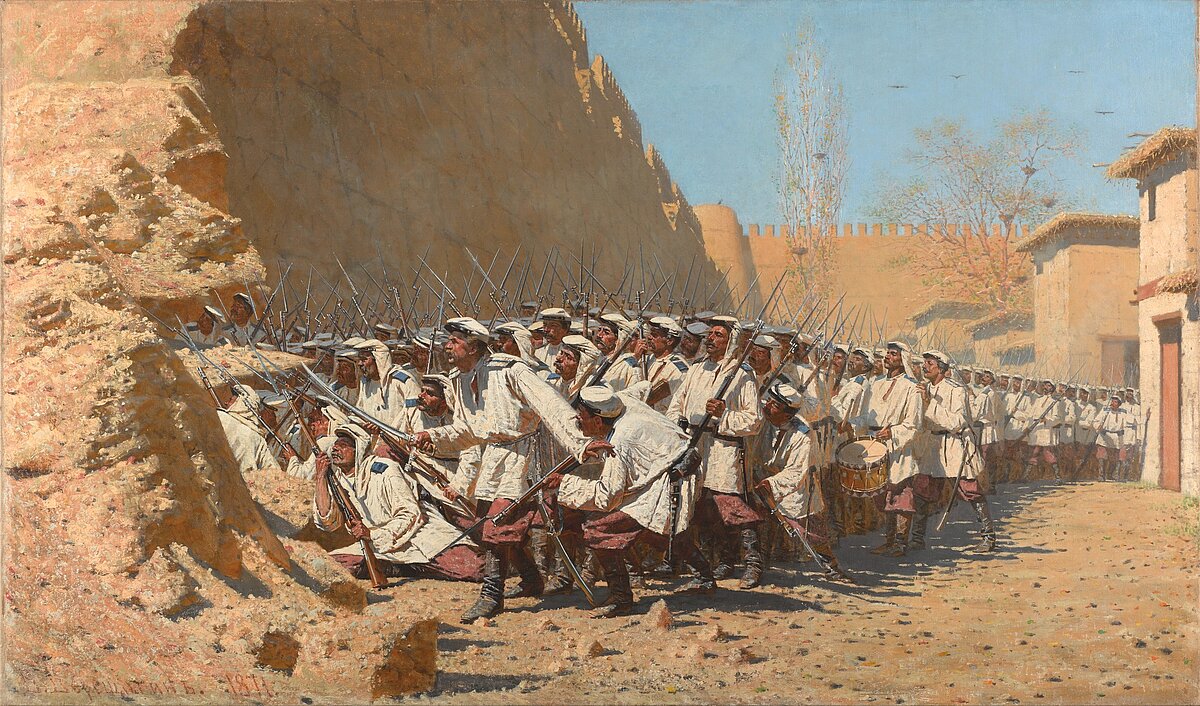What is Russion Colonialism?



What is Russian Colonialism? An International Conference
Vienna - June, 5-6 2024
Please find the PROGRAM here.
The Summer School 2024 is supported by the FWF-funded Cluster of Excellence ‘EurAsian Transformations’
Russia’s full-scale invasion of Ukraine on 24 February 2022 has prompted scholars operating in various research areas ranging from Eastern Europe to Central Asia to advocate for the decolonization of Russian history. What this means, however, and how it can be achieved has become a matter of controversy. Seen from an academic perspective, to decolonize Russian history amounts to clearing the rubble of Russian colonialism from our current thinking about the history of the successor countries to the USSR. Others, instead, confer on this agenda a different meaning: to expose the peculiar understanding that Russia today has of its own past, an understanding which is based on a selective reading of the imperial and Soviet past, on the one hand, and the systematic denial or erasure of select aspects from its history, on the other.
Regardless of the meaning we attach to it, the current call for decolonizing Russian history is a timely reminder that there isn’t a consensus as to if and how the Russian empire was a colonial state formation. Time and again over the last year and a half have public commentators and occasional observers alike brandished the old adage that ‘the history of Russia is the history of a country that colonizes itself,’ thereby suggesting that Russia is somehow inoculated against the sins of European colonialism. And the idea of ‘internal colonization’ too threatens to become a variation on the theme of the Sonderweg, nothing else than a fig leaf campaign to cover up how Russia’s mission civilisatrice was premised upon violence, racism, as well as the distortion and obliteration of indigenous cultures.
The controversy surrounding the current discussion on the decolonisation of Russian history, however, affords historians an unprecedented opportunity to increase awareness about Russian imperial traits, to rethink the nature of Russian colonialism from the perspectives of their own material, and engage with venues of research so far left unexplored.
The proposed international conference is designed to bring into conversation social and intellectual historians of the Russian empire and offer scholars specialising on the history of the Russian colonies (, i.e., Volga-Ural, Siberia, Ukraine, the Baltics, the Caucasus, Manchuria, and Central Asia) a platform for interaction and meaningful intellectual exchange. For the purposes of this event, we would like to cast our net as wide as possible and draw the attention of established as well prominent young scholars who have
contributed meaningfully to the international debate on the decolonization of Russian history.
In this endeavor, we will proceed from an understanding of colonialism as reflecting the colonial power’s (a) assumption of a position of superiority; (b) creation of colonies by expanding into and designing dependent structures on foreign territory; (c) ruling over colonies according to its own preferences. Possible topics include, but are not limited to: colonialism in Russian intellectual history; imperial expansion and conquest; colonial management; Russian imperial policies towards indigenous peoples and their cultures; the perspectives of colonial subjects on Russian colonialism; comparative aspects; economic relations; cultural expressions of colonialism.
Proposals should include paper abstracts of up to 500 words and a short CV (no more than 2 pages) of each speaker. Please send your proposal to paolo.sartori@oeaw.ac.at and w.mueller@univie.ac.at by 15 January 2024 at the latest. Travel and accommodation costs for invited speakers will be covered by the Austrian Academy of Sciences.